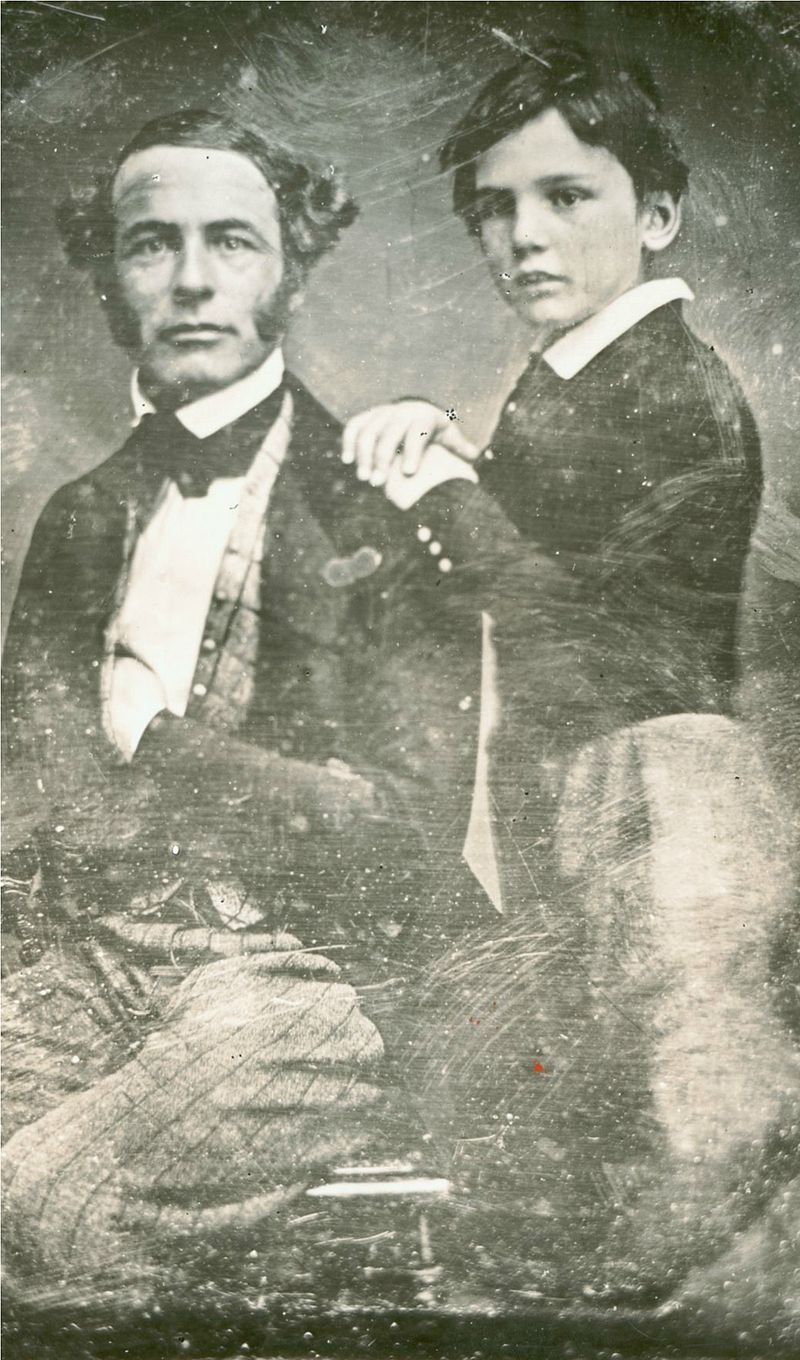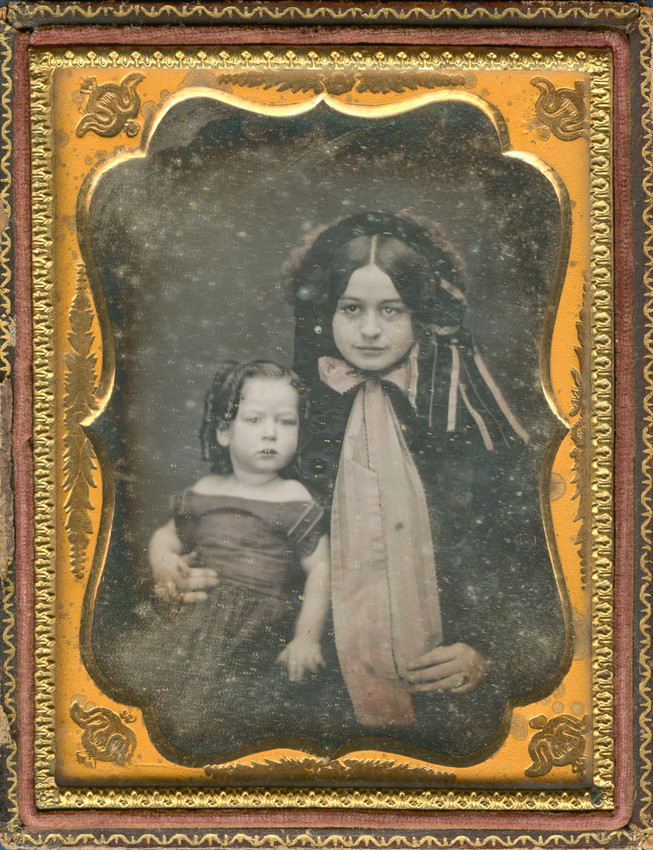A Father’s Influence
They crunched along the snow-covered path, enjoying the crisp air and companionship. The father held his son’s little hand and slowed his steps to accommodate the boy’s short stride. They had been talking, but were quiet now. The father became absorbed in his own thoughts, wondering how long this leave from military duty would last and what challenges he would face when he returned. Shaking aside those thoughts, he spotted a red bird fluttering in the tree and looked down at his son. Then he realized his hand was empty. His son was not at his side.
Turning, he spotted the little fellow a few yards behind. Standing upright with shoulders back and eyes forward, the boy was stepping deliberately, putting his small boot into the footprints made by his father’s large boots. “When I saw this,” the father would later recall, “I said to myself, ‘It behooves me to walk very straight, when this fellow is already following my tracks.’”[i]

We usually think of Robert E. Lee as a soldier. After-all, that was his profession, and his battlefield strategies are still studied by modern military tacticians. One of the less-recognized aspects of Lee’s life was his role as father. In parenthood, he faced challenges and triumphs, ultimately gaining and retaining the love, trust, and respect of his children.
The professional soldier has always had more challenges to be involved in his children’s lives. This was especially true in the 19th Century – an era without phones, Skype, or electronic messaging. A soldier might be away from his family for years, with only letters to keep in communication; sometimes a family was allowed to travel and live at a military post, but this wasn’t always possible.
Robert Lee’s wife – Mary – had delicate health and soon found that traveling and living in rough forts was not best for her or the young children. She remained at the family home – Arlington – raising the children, managing the household as best she could, writing letters to her husband, and waiting for him to come home. The seven children – Custis, Mary, William (“Rooney”), Annie, Agnes, Robert (“Rob”), and Mildred – didn’t get to spend a lot of time with their father since he was stationed in other parts of the country for much of their youth.

Remembering his childhood, Rob Lee admitted that he had no memories of his father before the age of five. His first recollection of meeting his father was in 1848 when the captain returned from the Mexican War. According to the story, Rob “clothed in my very best with my hair freshly curled in long golden ringlets” dashed into the yard to meet his father. However, Father “pushed through the crowd, exclaiming, ‘Where is my little boy?’ He then took up in his arms and kissed – not me…but my little playmate…”[ii] (Oops!)
However, the long separations did not prevent Lee from understanding and accepting his important paternal role. He was careful to spend extra time with his children when he was at home, starting one tradition of letting the children tickle his hands and feet if they wanted to hear a story.[iii] Lee also showed appreciation and respect for Mary’s consistent parenting, making sure the children knew he supported her efforts and decisions, though usually requiring more “exact obedience” than she did.[iv]
The most significant way Lee influenced his children’s lives – despite the separations – was through letters. Whether it was words of wisdom directed to them in family letters or personal notes just for them, Lee made sure all seven children knew he loved them, cared about their daily lives, and encouraged them to be young men and women of strong character.
March 31, 1846, to nine-year-old “Rooney”
You and Custis must take great care of your kind mother and dear sisters when your father is dead. To do that you must learn to be good. Be true, kind, and generous, and pray earnestly to God to enable you to “keep His commandments, and walk in the same all the days of your life.[v]

May 4, 1851, to Custis at West Point Military Academy
Hold yourself above every mean action. Be strictly honorable in every act, and be not ashamed to do right. Acknowledge right to be your aim and strive to reach it.[vi]
December 25, 1862, to sixteen-year-old Mildred at a girl’s school
You must study hard, gain knowledge, and learn your duty to God and your neighbor; that is the great object of life.[vii]
When the Civil War began and Lee made the decision to resign from the U.S. Army, he did not force his opinions on his children. Knowing that he had encouraged them to be principled, rational thinkers, he refrained from influencing them, letting them choose what they would do. Ultimately, the children followed their father’s footsteps. Lee’s daughters supported the Confederacy, remaining with the mother and doing women’s war work for the majority of the time. His sons enlisted and served with distinction in the Confederate forces; Lee was careful not to promote his sons through nepotism, requiring them to win their own victories.
Robert E. Lee was a professional soldier committed to his military duties, but he also understood the importance his influence as a father had on his children’s lives. Though not always able to be with his sons and daughters, Lee still made a significant contribution in shaping their characters and encouraging them to be virtuous, independent, and responsible young men and women. Perhaps the lessons we could learn from Robert E. Lee aren’t just from bloody battlefields. Perhaps we should remember his example as a father, investing in the lives of his children with wisdom, love, and encouragement.
[i] William J. Johnson, Robert E. Lee: The Christian, (1993, reprinted), Page 36.
[ii] Anne Carter Zimmer, The Robert E. Lee Family Cooking and Housekeeping Book, (1997), Page 28.
[iii] Ibid.
[iv] Ibid, Pages 27-28
[v] William J. Johnson, Robert E. Lee: The Christian, (1993, reprinted), Page 37.
[vi] Ibid, Page 43.
[vii] Ibid, Page 99.
Excellent story thank you
Well Done
Thank you for the fine Father’s Day message. Sarah, you seem to have a great father!
You’ve written an honor and encouragement to all fathers separated from their children in order to serve their country. The letters of prior years, Skype, Facebook, and texts of current communications mean much in strengthening the fatherly bonds. A meaningful message for today!
Thank you from a father great post